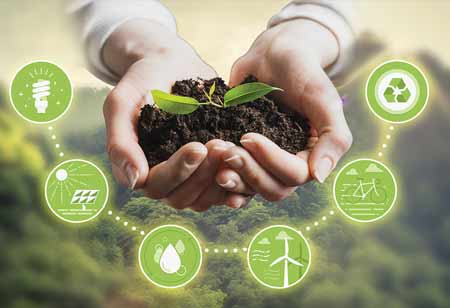Douglas Glorie is an expert with over 20 years of experience managing various health and safety, sustainability, remediation and environmental engineering projects in the construction industry. His leadership and problem-solving skills help foster sustainability at STV.
In an interview with Environmental Business Review, Glorie shares his insights on trends and challenges revolving around the ecological restoration space and how technological advancements help mitigate them.
Can you briefly outline your background and the professional path that led you to your current role?
My journey began as a field technician in the environmental industry, specializing in hazardous materials and lead-based paint when the Occupational Safety and Health Administration (OSHA) passed 1926.62 - lead in construction rule. In the subsequent years, I worked for a consulting company. I’ve also helped manage health and safety for the state of New York before shifting my focus to federal, state and local agencies. In subsequent years, I worked on client projects for the Metropolitan Transportation Authority, Army Corps of Engineers, United States Department of Agriculture and other New York City agencies throughout the Northeast.
I joined STV in 2011 to expand the environmental services practice. STV is an award-winning professional firm that consistently ranks among the country’s top companies in transportation infrastructure, including rail, mass transit, highways and bridges; water; and social infrastructure, such as, healthcare, education and justice. Throughout the United States and Canada, STV’s professional, technical and support personnel offer services to a broad and expanding client base.
Over the past 13 years at STV, I’ve progressed from building sciences group manager to vice president of environmental services, managing various environmental services like sustainability consulting, due diligence, engineering, and hazardous materials management consulting.
What are some significant trends and challenges impacting the ecological restoration space?
There will likely be an increased reliance on technology for data collection, analysis and identification of industry trends. This approach is expected to increase the efficiency of identifying problems beforehand.
A major challenge is finding passionate individuals for the industry. It is also essential for organizations to recognize the time required to implement environmental policies and corrective actions. Deferred maintenance and ecological management of infrastructures throughout the country is another significant issue that needs urgent attention. To address this, we need to devise an effective future plan, prepare a budget and execute sustainable practices correctly.
Can you shed light on some of the strategies that can be adopted to mitigate these challenges?
Education plays a pivotal role in enforcing various corrective actions. There is a pressing need for the industry to be educated on the importance of environmental issues, not just for compliance but for its prolonged benefits. STV provides our employees with training and mentoring at many levels. The STV Intern Development program is designed to provide college students with the skills needed for to prepare them for a successful career. STV has a robust project management training for mid-level professionals to improve their skill set.
Every project has to be channeled through a client’s proper understanding of the cost and amount of time it takes for implementation of the environmental protective measures that follow proper guidelines. It requires getting qualified professionals who can advise on project execution, adhering to regulations and long-term solutions.
What are some of the technological trends that are transforming the industry?
Technology plays a crucial role in digitizing various cumbersome tasks like manual data collection and analysis to enhance efficiency. Leveraging technological tools can help analyze large databases and identify trends, which eventually benefits the residents of a property. Also, online platforms for mold inspections and wireless air monitoring devices provide real-time data, allowing for quicker corrective actions. In most traditional methods, to assess a situation, the sample has to be examined at the laboratory, delaying the remedial actions by days or weeks. However, utilizing these technologies can significantly reduce the time, effort and inefficiency in the implementation of all the operations.
How do you envision the future of the space a couple of years down the line?
There will likely be an increased reliance on technology for data collection, analysis and identification of industry trends. This approach is expected to increase the efficiency of identifying problems beforehand. Incorporating remote sensing technologies into operations will potentially help detect inefficiencies in buildings, like leaks or indoor air quality problems.
What advice would you give your peers and budding professionals in the field?
Stay curious about the environment and continuously educate yourself on various industry events. Constantly challenge yourself by taking more management roles to elevate your career experience.


